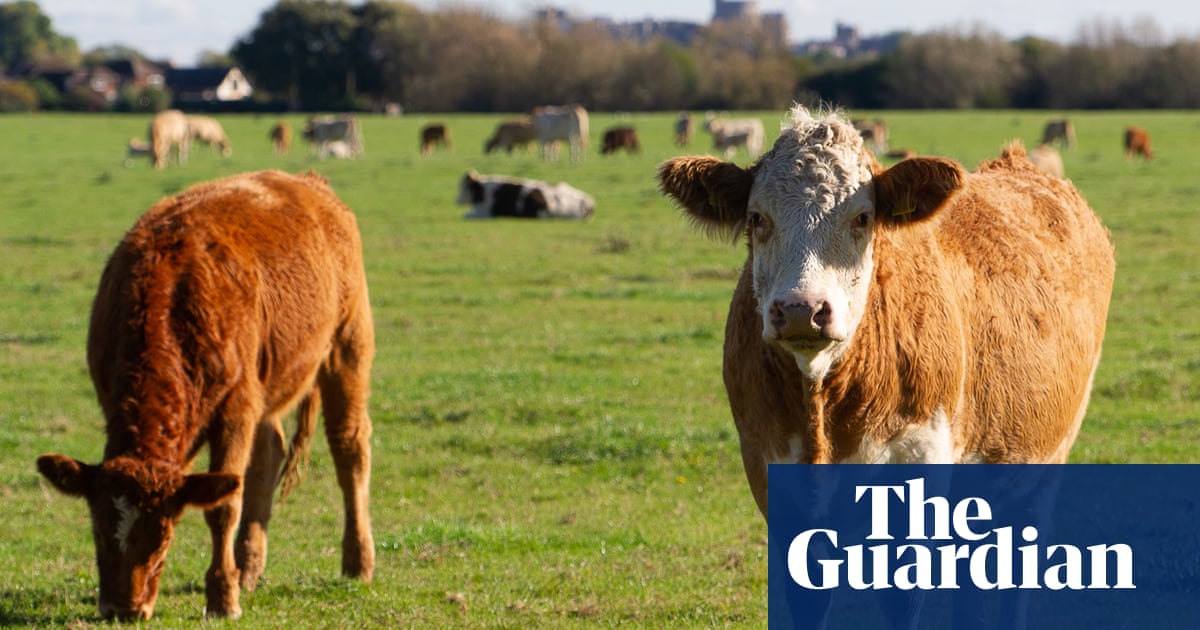Big dairy companies are “turning a blind eye” to climate-damaging methane emissions, an assessment of the industry’s performance has found.
Animal agriculture accounts for 32% of global emissions of methane, a greenhouse gas about 80 times more potent than carbon dioxide over a 20-year period, with the breeding of cattle for milk and meat a key driver.
Methane has been assessed as responsible for nearly half the total global temperature rise since 1750. But since it is short-lived in the atmosphere compared with carbon dioxide, cuts to emissions have been identified as an urgent move in tackling climate breakdown.
However, an assessment of 20 major dairy and coffee shop chains – with combined revenues exceeding $420bn (£323bn), almost half the value of the estimated size of the global dairy industry – found most lack clear methane reduction targets, credible action plans or even basic transparency on emissions.
The food products corporation Danone came top in a league table compiled by researchers, being the only company to have a methane-specific target. The US-based company General Mills came in second place, having published a climate target but not one specific to methane.Nestléand Arla came third, with Nestlé the only company to have explicitly supported reducing dairy consumption.
Of the companies assessed, only Nestlé and Danone claimed to have actually cut emissions, despite all but two having affirmed methane and livestock pose a threat to the climate.
“Dairy production is a rare lever to control methane emissions, but one that firms clearly don’t want to touch,” said Nusa Urbancic, the chief executive ofChanging Markets, which carried out the research.
“The near-total absence of methane-specific targets and credible action plans sends a clear signal: companies are turning a blind eye to emissions of one of the most potent and solvable drivers of global heating.”
Companies in the assessment included the largest dairy companies inEuropeand North America by annual revenue, the five largest coffee chains in Europe and North America, and all eight members of the Dairy Methane Action Alliance (DMAA), an industry initiative.
Urbancic added: “Our audit shows that fine words from businesses and a few voluntary actions are little more than hot air. Governments must finally grab the bull by the horns and set science-based methane cuts for the agricultural sector.
Sign up toDown to Earth
The planet's most important stories. Get all the week's environment news - the good, the bad and the essential
after newsletter promotion
“All eyes are on European governments, given its leadership on the global methane pledge and upcoming legislation in this area.”
An Arla spokesperson said: “Alongside our farmer owners, Arla is committed to producing more sustainable dairy and has clear science-based targets in place.”
Danone, General Mills and Nestlé have been contacted for comment.
